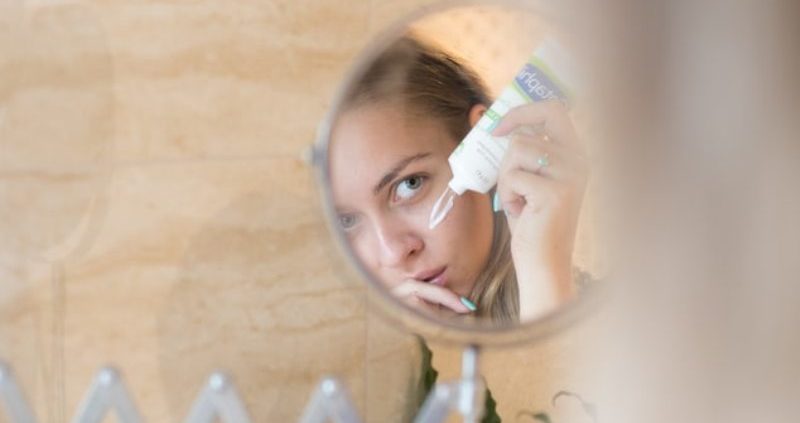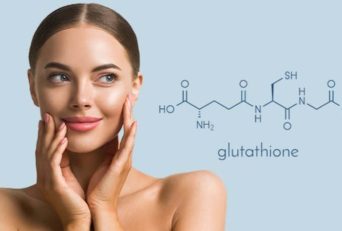Peptides have been around for decades. However, it’s only been recently that companies have been to recognize new applications for these molecules. Most recently, biotech companies like PeptiDream have begun to explore the use of peptide-based drugs for treatments such as cancer- and with great success rates so far. Meanwhile, in the skincare and wellness industry, peptides are the ingredients that most companies (and consumers) can’t seem to get enough of, with experts promising great results in the bid to slow skin aging and promote fat burning and muscle building. So what exactly are these essential amino acids, and more importantly how can they fit into your daily health and wellness routine?
Table of Contents
Unraveling The Peptide Mystery
In each of our bodies, there are 20 types of amino acids which are then used as the building blocks for proteins such as keratin found in our hair and collagen, which plays a key role in the elasticity of our skin and supporting muscle growth. That being said, there are hundreds of different peptides and each one of them supports a different function. Therefore it is important that you understand the different kinds and their purpose before using them in your health and wellness routine. For instance, collagen supports skin health and can help with joint diseases while creatine is more suited for avid fitness fans since it improves exercise performance and boosts muscle mass. Creatine also helps to support neurological health. Since each peptide is designed to stimulate growth in parts of the body, tailoring your diet and supplement intake to your needs is usually easy.
In recent years, the popularity of these supplements such as collagen or biotin supplements has skyrocketed, lining the shelves of most health food stores and capturing the curiosity (and wallets) of consumers seeking the answer to their aging or fitness concerns. In fact, experts predict that the anti-aging industry will surpass $216 billion by 2021 according to Zion Market Research, and collagen-infused products are quickly capturing a part of the market. In 2018 alone, American consumers spent over $122 million on collagen supplements and the increasing trend is set to continue this year. With such a rise in interest and revenue on peptide supplements, one question comes to mind: What can consumers expect to gain from the use of peptides, and is there is any evidence to support the claims?
The Peptide Guide To Great Skin Health
Collagen has long been touted as a staple in a great anti-aging skin routine. Research shows that it helps to maintain the skin’s elasticity and slows the aging process. When it comes to the role of peptides for your skin, they form the basis of protein and more specifically, collagen. Collagen peptides for your skin make up approximately 80 percent of your skin’s epidermis i.e. the outer layer of your skin. After the age of 20, the rate of collagen peptides produced by your skin decreases by 1 percent each year and stops altogether by age 40. The existing collagen in your body also begins to fragment due to the aging process.
Looking Beyond The Outer Benefits: Its Role In Overall Wellness
Peptides can also be a boost to your performance in the gym, and out of it. Certain kinds of peptides such as BPC- 15 have been shown to help with muscle recovery from injuries and exercise. While much has been said in fitness about consistency and commitment to an exercise routine, rest and recovery are just as important. A publication in Harvard Men’s Health Watch state that their use can provide protection from fractures, boosted exercise capacity and help to build muscle mass. However, its benefits extend well beyond the physical aspects; peptides can also help your psychological well-being. Dr. Nina Bausek discusses the role of such peptides in not just increasing the healing of soft tissue injuries such as muscle or tendon tears, but also in the promotion of gut healing and brain health. It can improve your sleep duration and quality, which is then linked to a magnitude of other factors including your mental wellbeing and productivity at work.
Boosting Your Peptide Intake And Generation
The best place to begin when it comes to boosting your peptide intake for skin benefits is through your diet. Leafy vegetables and citrus fruits rich in Vitamin C contain high levels of naturally occurring collagen while lean meat is a great source of protein and amino acids. Finally, consider including oysters in your diet since they contain high levels of copper which then activates collagen synthesis. Of course, you can also look to including skincare supplements and products in your daily skincare routine for that extra boost. Products such as Elemis Pro-Collagen Super Serum Elixir, Sunday Riley’s Bionic Anti-Aging Cream or Vital Proteins Collagen Peptides are just some of the many examples available on the market today.
However, before you hop onto the peptide bandwagon, take a second to weigh the pros against the cons. Before including supplements, it is always best to look towards optimizing your diet to boost your peptide intake. In addition, with so many different types it can be difficult to pinpoint the correct one for your desired outcome, and one that won’t irritate your skin or body. Therefore, it is always recommended that you take the time to do your research and speak to a health professional if needed, before investing.






